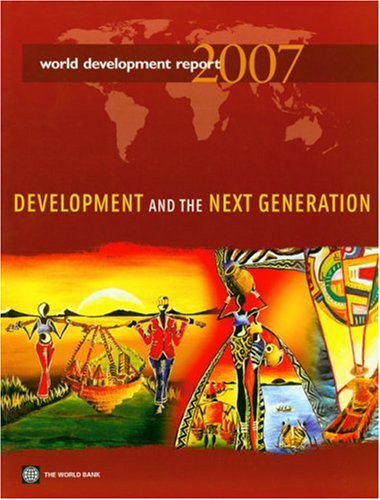Inhaltsangabe:
Developing countries which invest in better education, healthcare and job training for their young people between the ages of 12 and 24 years of age, could produce economic growth and sharply reduced poverty. With 1.3 billion young people now living in the developing world - the largest-ever youth group in history - the report says there has never been a better time to invest in youth because they are healthier and better educated than previous generations and they will join the workforce with fewer dependents because of changing demographics. The report says that young people make up nearly half of the ranks of the world's unemployed and as, for example, in the Middle East and North Africa region must create 100 million jobs by 2020 in order to stabilize its employment situation. Moreover, surveys of young people in East Asia and Eastern Europe and Central Asia - carried out as research for the report - indicate that access to jobs, along with physical security, is their biggest concern. Far too many young people, some 130 million 15-24 year olds, cannot read or write. Secondary education and skill acquisition make sense only if primary schooling has been successful. This is still far from being the case and efforts have to be reinforced in this area. In addition, more than 20 percent of firms in countries such as Algeria, Bangladesh, Brazil, China, Estonia and Zambia, rate poor education and work skills among their workforce. Overcoming this handicap starts with more and better investments in youth. The report highlights three areas to promote better investment in the future: expanding opportunities; enhancing capabilities and providing second chances. Expanding opportunities focuses on increasing the quality of education, smoothing the transition to work and providing young people with a platform for civic engagement. Enhancing capabilities involves making young people aware of the consequencesof their actions, especially consequences that will affect them much later in life as well as building their decision-making skills and giving them the right incentives. Providing second chances calls for helping young people recover from missed opportunities through remedial education, retraining treatment and rehabilitation.
Über die Autorin bzw. den Autor:
The World Bank came into formal existence in 1945 following the international ratification of the Bretton Woods agreements. It is a vital source of financial and technical assistance to developing countries around the world. The organization's activities are focused on education, health, agriculture and rural development, environmental protection, establishing and enforcing regulations, infrastructure development, governance and legal institutions development. The World Bank is made up of two unique development institutions owned by its 185 Member Countries. The International Bank for Reconstruction and Development (IBRD) focuses on middle income and creditworthy poor countries and the International Development Association (IDA), which focuses on the poorest countries in the world.
„Über diesen Titel“ kann sich auf eine andere Ausgabe dieses Titels beziehen.
![]()
